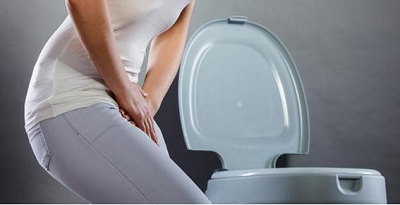Can Pelvic Inflammatory Disease Cause Frequent Urination?
Pelvic inflammatory disease is a disease of the female reproductive system, while frequent urination is a symptom of urinary system diseases.

So, does pelvic inflammatory disease cause frequent urination?
Pelvic inflammatory disease (PID) is an infection of a woman's upper reproductive tract (including the uterus, fallopian tubes, and ovaries), which in turn causes acute and chronic inflammation within the pelvic cavity, including endometritis, salpingitis, tubo-ovarian cysts, pelvic peritonitis, and so on.
Symptoms of pelvic inflammatory disease are complex and varied and can involve multiple organs and tissues within the pelvis. Common symptoms include abnormal discharge, lower abdominal pain, painful intercourse, and fever. If the condition is more severe, chills, high fever, headache, and loss of appetite may occur.
In addition to these common symptoms mentioned above, pelvic inflammatory disease does cause frequent urination. This is because, with this disease, patients will experience significant pelvic congestion or pelvic fluid accumulation, and these can irritate the bladder, thus causing frequent urination.
In addition, patients with PID will experience an increase in vaginal secretions, which can irritate the urethra and also cause frequent and painful urination.
Finally, if the disease is left untreated, the bacteria may spread to the surrounding tissues through the lymphatic vessels or blood circulation, leading to bladder or urethra infections, which in turn can cause symptoms such as frequent and painful urination.
Therefore, if a woman suffers from pelvic inflammatory disease, it is necessary to treat it in time. Otherwise, it may produce a series of pain and discomfort or even abnormal urination.
It should be remembered that although this inflammation may have some effect on frequent urination, the symptom is not the main basis for judging this disease. Therefore, if a woman experiences symptoms of frequent urination in her normal life, she should seek medical attention and undergo relevant examinations. If pelvic inflammatory disease is diagnosed, the following treatment methods can be used to restore health.
However, the specific choice of method needs to be judged according to the patient's condition and the doctor's guidance.
Diet Adjustment: Psychologically, female patients should pay attention to keeping positive emotions and actively cooperate with the doctor for treatment. At the same time, they should eat more protein- and vitamin-rich food for nutrition supplements. In the case of acute pelvic inflammatory disease, they should also eat more fluid food to facilitate the recovery of the disease.
Antibiotic Therapy: Try to apply a sufficient amount and course of antibiotics while cooperating with the doctor. In the acute stage of inflammation, intravenous drugs can be injected; in the case of chronic prolonged pelvic inflammation, patients can apply antibiotics during menstruation for five days each time they menstruate and apply them for three consecutive menstrual periods.
TCM Treatment: If the condition is not very serious, you can also apply some traditional Chinese medicine, such as Fuyan Pill. It has strong antiseptic and anti-inflammatory abilities and can help eliminate inflammation. At the same time, it also has the efficacy of promoting blood circulation, removing blood stasis, and relieving pain, which can regulate menstrual pain and other painful discomforts such as lower abdominal pain.
Surgical Treatment: If the condition is severe and the abscess formed is not relieved, timely surgical treatment should be carried out.
Of course, for chronic pelvic inflammatory disease, female patients can also choose physical therapy, such as local hot compresses or acupuncture, and radio frequency local treatment; these can promote local blood circulation and accelerate the absorption of inflammation to achieve the purpose of treating the disease.
To summarize, to completely cure pelvic inflammatory disease, it is best to adopt a comprehensive treatment method to recover as soon as possible. This disease has many causes, most related to bacterial infection. Pelvic inflammatory disease can be caused by not paying attention to hygiene during menstruation, not changing sanitary napkins frequently, using sanitary napkins of substandard standards, having sex during the period of menstrual leave, having infections after giving birth, or having infections during gynecological surgeries, etc. Therefore, women should notice these matters in their daily lives to prevent infection.
Recommended Reading
Pelvic Inflammatory Disease: When Dysmenorrhea Signals a Bigger Problem
Diet and Chronic Pelvic Inflammatory Disease: Can Food Choices Impact Symptoms?
Lower Back Pain? It Could Be Pelvic Inflammatory Disease!
previous pageCan Men Being Too Rough During Sex Cause Abdominal Pain In Women?
next page- Severe Endometriosis Treatment: Chronic Pelvic Pain Relief and Infertility Solutions
- Managing Adenomyosis: Easing Pelvic Pain and Heavy Menstrual Bleeding with Natural Approaches
- Daily Care Tips for Pelvic Inflammatory Disease Caused by Ureaplasma Urealyticum
- Is Fallopian Tube Blockage Causing Your Lower Abdominal Pain?
- Don't Let Pelvic Pain Trouble You! Traditional Chinese Medicine and Dietary Therapy to the Rescue
Testimonials
- Adenomyosis with Ureaplasma Urealyticum Cured by Fuyan Pill
- Tubal blockage with hydrosalpinx can be cured by TCM shortly
- Fuyan Pill Helps A woman with Adenomyosis Get Pregnant
- A Woman with Hydrosalpinx Is Cured with Fuyan pill
- Pelvic Inflammatory Disease Testimonials
- Irregular Vaginal Bleeding and Endometrial Thickening Cured by Fuyan Pill
- Pruritus Vulvae and Frequent Urination: Mycoplasma Infection Cured after 2 Courses



